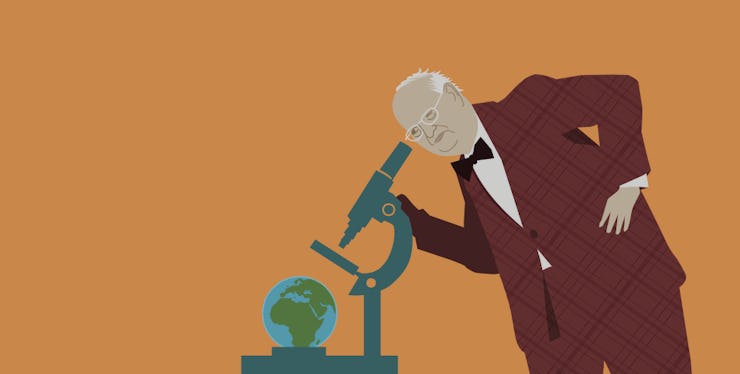Why Angus Deaton Was Shocked to Win the Nobel Prize in Economics
Deaton's holistic approach changed how we look at economics.

The conventional wisdom that poverty is getting worse doubles the collective surprise that this year’s winner of the Nobel Prize in economics is Angus Deaton.
“I work on a lot of different things, and I always thought that would make it very difficult for the committee to pick me because they often focus on one deep thing,” Deacon, a Princeton professor, told the Associated Press of his holistic approach.
Here’s the Royal Swedish Academy of Science on Deaton’s selection:
“To design economic policy that promotes welfare and reduces poverty, we must first understand individual consumption choices. More than anyone else, Angus Deaton has enhanced this understanding. By linking detailed individual choices and aggregate outcomes, his research has helped transform the fields of microeconomics, macroeconomics, and development economics.”
Deaton’s analysis of microeconomics has always been more about consistently just getting on base than jolting home runs, first making a name for himself in the ‘80s for work on two critical issues. The first, his Almost Ideal Demand System — a flexible way to estimate demand for goods depending on the price of other goods and income rates — is now a go-to tool for both policy makers and academics. The second, the Deaton Paradox, puts forth the idea that a shock to the income doesn’t necessarily mean a shock to consumption. So take your trash out of here, Milton Friedman’s permanent income hypothesis. Deaton’s also a big critic of foreign aid, claiming it undermines local progress to lasting solutions.
For all he’s seen, Deaton is a fairly upbeat guy. By his measure, our lives are improving and worldwide poverty is on the decline. But if we really want to be sure, we’ll need to measure it not only by income but by health, education, and democracy.
“I do foresee a decrease in poverty. We’ve seen a remarkable decrease over the past 20 years, and I do forecast that will continue,” he tells CNN. “But I don’t want to sound like a blind optimist.”
Deaton, my friend, we could use some blind optimism.